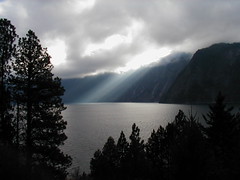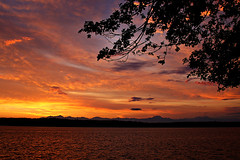
In Washington State, the legislature is mucking its way through another special session, attempting to deal with a multi-billion dollar cash shortfall. On the chopping block? State parks. It was no great news, as the park system had already been put on notice that they'd be knocked off state budget support in 2013.
Since that time, various funding "alternatives" have been floated. Forcing park visitors to buy an access pass was one of the "finger in the dike" ideas that leaked. First, state residents weren't too keen on buying a pass to get into a so-called publicly owned park. Then when they found the pass was good for only one vehicle, two (or more) car families got sore.
The "Discover Pass" plan is far from going like a house afire. Sales of the pass are far, far less than imagined, and certainly far from taking care of the parks' needs. Now with the legislature back in Olympia, scuttlebutt has it the lawmakers may move to allow the Discover Pass to be used in more one car. It may help, but as a for-sure life support method, it's not expected to make it.
So the state parks folks are talking creativity. Here's a novel approach--reduce fees when use is lower, enticing campers to come in during the off-season and the off-times of the week. If football stadiums can have sponsors, why not parks? How about, "The Budwiser Visitor Center at Twin Harbors Beach" as an example? "Alternative" camping might see a push in growth. Where parks have rental structures like yurts and cabins, non-RVing folks sometimes push up the revenue stream.
Washington's park system is a gem. With a little imagination, maybe locking the gems away behind the bars of "Closed for Lack of Funding" won't be necessary.
Lake Wenatchee State Park, Washington State Parks Photo

















